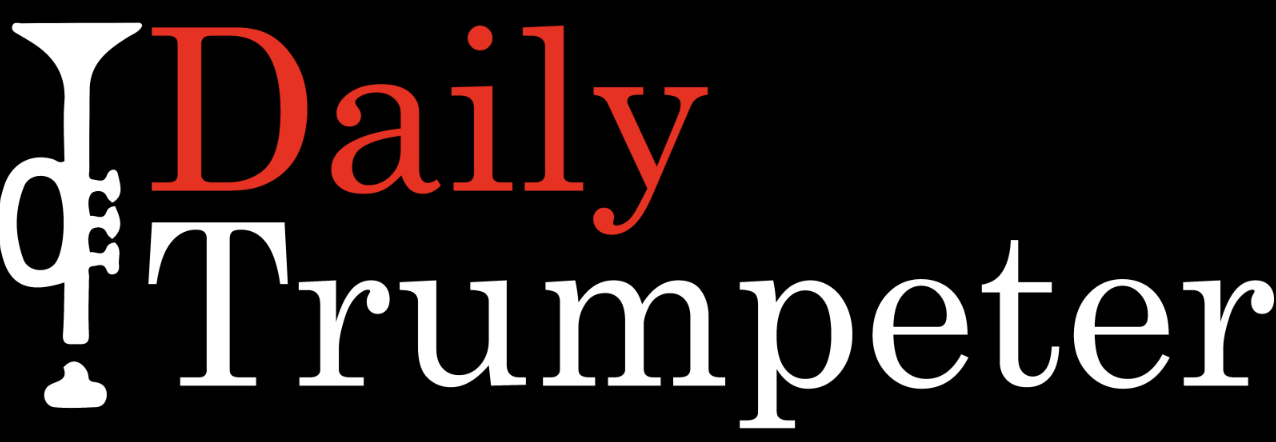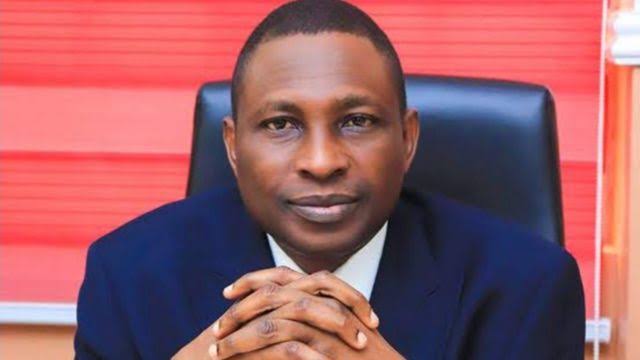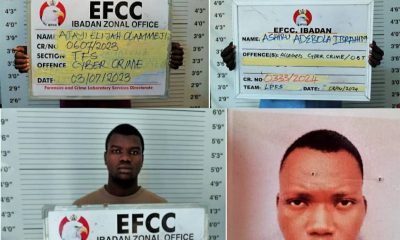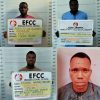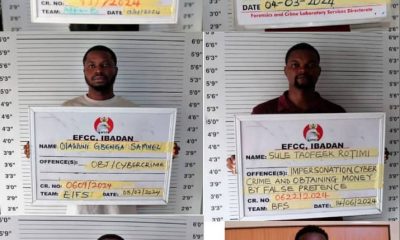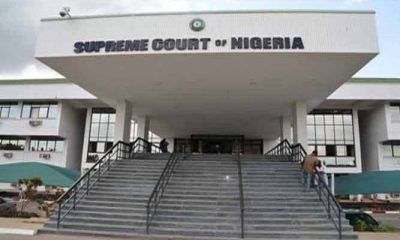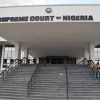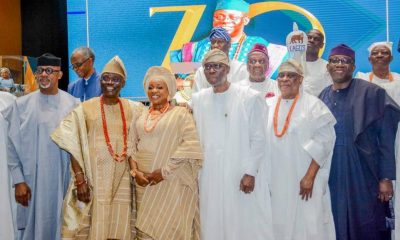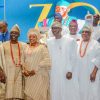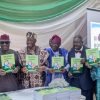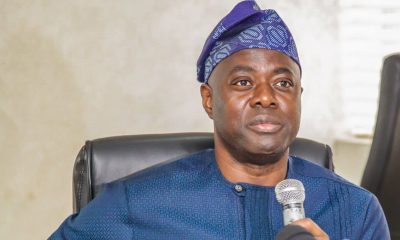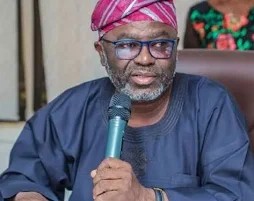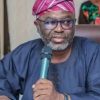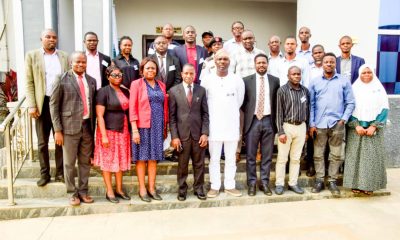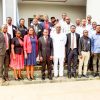News
Toothless bulldog : Tinubu’s EFCC can’t fight corruption
OLA Olukoyede, the chairman of the Economic and Financial Crimes Commission, EFCC, recently appointed by Nigeria’s new president, Bola Tinubu, is saying the right things and making the right noises about fighting corruption in Nigeria. Recently, he struck a chord with me when he called for unexplained wealth legislation in Nigeria.
Unexplained wealth laws are the most powerful tool for tackling corruption, as I wrote in a piece titled: “Fighting corruption? Nigeria must tackle unexplained wealth” (Vanguard, November 22, 2021). Yet, despite my positive opinion of the new EFCC chairman, the stark reality is that the EFCC won’t and can’t make an iota of difference in stemming the inexorable rise of corruption in Nigeria. The agency is so bedevilled that it has become part of the problem, not part of the solution.
Last year, I wrote a piece titled, “Corruption: EFCC is not fit for purpose; it’s time to scrap it!” (Vanguard, June 8, 2023). In that article, I made three points. First, EFCC has now existed for 20 years, since its creation in 2003, yet Nigeria remains one of the most corrupt countries in the world, still languishing at the bottom of the Transparency International Corruption Perceptions Index, ranked 150 out of 180 countries surveyed in 2022. Second, the EFCC is so politicised that every new president must appoint his own EFCC chairman. Third, virtually all EFCC chairmen, since the agency’s inception, have been enmeshed in corruption allegations. Of course, there’s the judiciary, which tends to side with corrupt politicians by acquitting those charged with corruption purely on technicalities. How can the EFCC be effective in those circumstances?
Unfortunately, those are the invariant conditions under which Olukoyede’s EFCC operates. To make matters worse, the Tinubu government lacks credibility on the anti-graft front. Earlier this week, Tinubu told a delegation of the Christian Association of Nigeria, CAN: “We’ll continue to fight corruption.” But how credible is that commitment when his government is littered with people with unexplained and inexplicable wealth? Truth is, fighting corruption in the Tinubu government must start from within the government itself, and that goes beyond scapegoating small fries like Betta Edu. It requires a surgical operation to drain the swamp.
Professor Wole Soyinka put it powerfully in his recent Channels TV interview. He said the EFCC and the Independent Corrupt Practices Commission, ICPC, should be questioning former governors occupying critical positions in the Tinubu government now that they no longer have immunity. “Are they answering questions from the EFCC?” he asked, adding: “ICPC, EFCC, what are you doing about them? What happened? We’ve been waiting.” Indeed, we are still waiting!
Granted that it can’t investigate a sitting president or governor because of their immunity, but why would a truly independent anti-graft agency not be able to investigate anyone else without fear or favour? In 2022, the FBI launched a criminal investigation against President Biden’s son, Hunter Biden, over allegations of tax crimes, drug use and illegal purchase of handgun. The FBI did not dodge the investigation because it involved the president’s son, and President Biden did not stop the FBI from doing its job. Can that happen in Nigeria? Absolutely not. Rather, the EFCC has, historically, been accused of being a political tool, used by successive presidents to harass their political opponents or pressured to turn a blind eye to the corrupt practices of their allies.
Recently, opposition governors whose elections were validated by the Supreme Court lavished praise on Tinubu for not interfering in the apex court’s verdicts. The inference is that he could have interfered and that he probably interfered in other instances, such as, perhaps, the controversial Nasarawa State governorship case. Truth is, there are no real checks and balances in the governance of Nigeria: the president is too powerful and can manipulate any so-called independent body. For instance, although the EFCC can, in theory, prosecute corruption cases independently, it will not investigate or prosecute anyone if the president’s body language says: back off! After all, under President Buhari, EFCC often stopped summoning prominent PDP politicians accused of corruption once they decamped to APC. Indeed, a former APC national chairman, Adam Oshiomhole, famously said: “Once you join APC, all your sins are forgiven!”
Truth be told, political interference is the EFCC’s Achilles heel. Nothing proves this better than the fact that every new president must have his own EFCC chairman. In his book: Reclaiming the Jewel of Africa, Dr Segun Aganga, a former minister, wrote glowingly about Abdulrasheed Bawa, the former EFCC chairman. He said Bawa “has demonstrated an informed or enlightened knowledge of the issues and how to deal with them”, adding: “Chairman Bawa is young, passionate about his job, vibrant, analytical and full of the right ideas that will take the EFCC into the 21st century.” Yet, no sooner had Tinubu become president than he suspended and incarcerated Bawa, citing “weighty allegations of abuse of office levelled against him.” But if you expect the “weighty allegations” to lead to Bawa’s conviction, forget it: the case will soon fizzle out. Tinubu needed to remove Bawa to bring in his own man, and Olukoyede is Tinubu’s man!
Yet, besides political interference, the EFCC itself is corrupt. Recently, Olukoyede himself confirmed it. In his New Year message to the agency, he said: “The craze and quest for gratification, bribes and other compromises by some of our investigators are becoming too embarrassing.” A senior lawyer, Kayode Ajulo, SAN, responded by calling for a presidential taskforce to unmask corrupt EFCC officials. Tell me, where is the hope for tackling corruption in Nigeria when the staff of EFCC, the anti-graft agency, are themselves corrupt?
Those of us who bang on about corruption do so because of its corrosive political, economic and social effects. Politically, corruption erodes democratic legitimacy. If someone steals public funds and uses the loot to buy votes and win election, where’s the legitimacy? Economically, corruption drains a country’s resources and hampers its development. Socially, corruption breeds all evils. As someone aptly put it, “corruption is the most incredible machine for manufacturing poverty”. And, of course, it’s also a major cause of inequality, social discontent, insecurity, name it!
Nigeria has industrial-scale corruption yet lacks the political will and institutional capacity to tackle it frontally. Successive governments pay lip service to the “war against corruption”. With a powerless EFCC, Nigeria faces a spike in kleptocracy.
Vanguard
